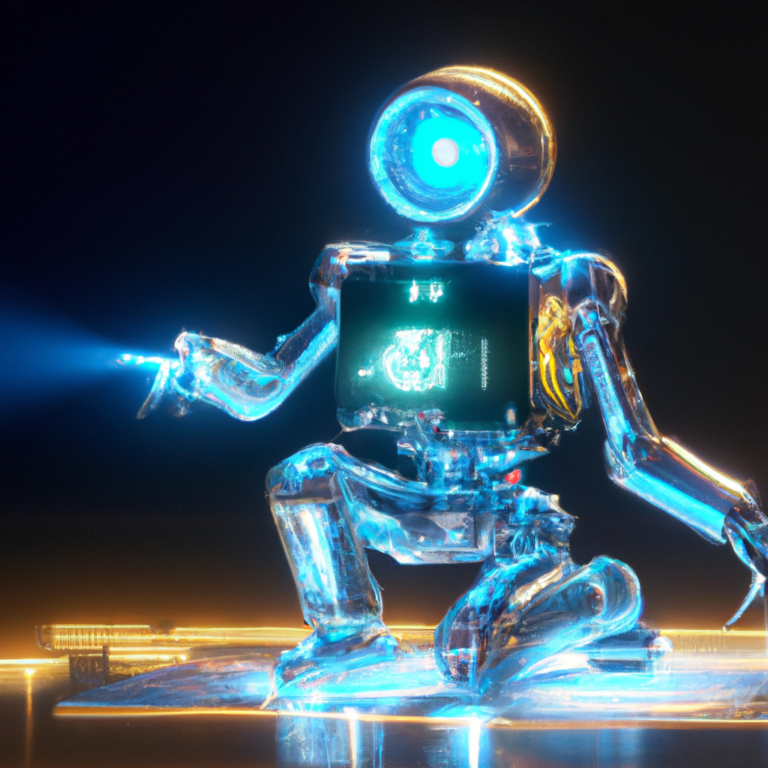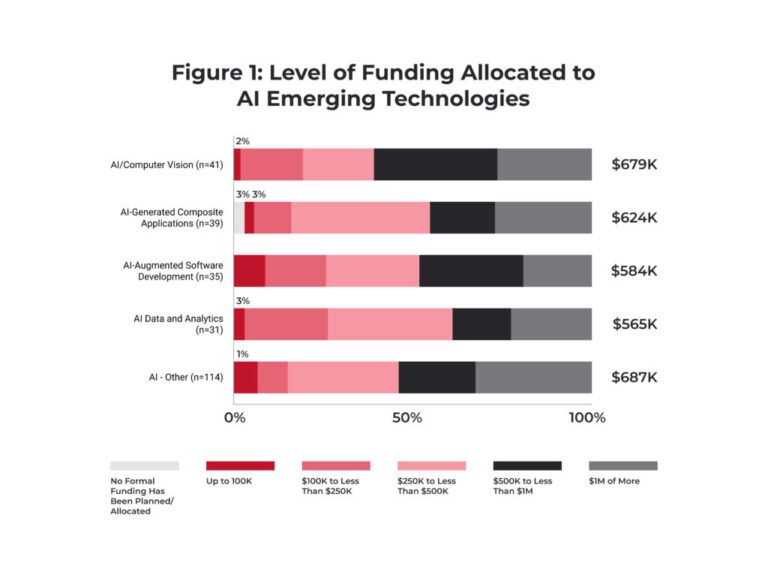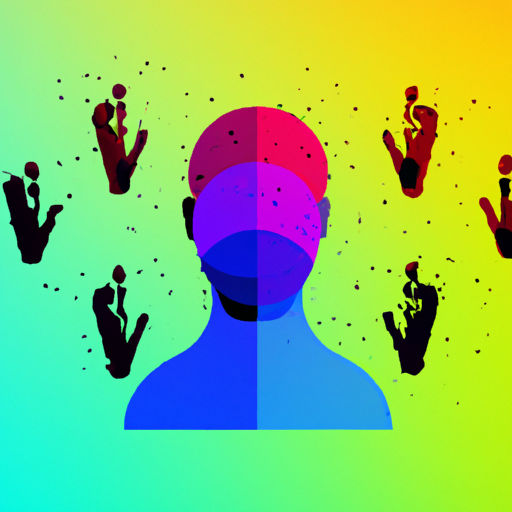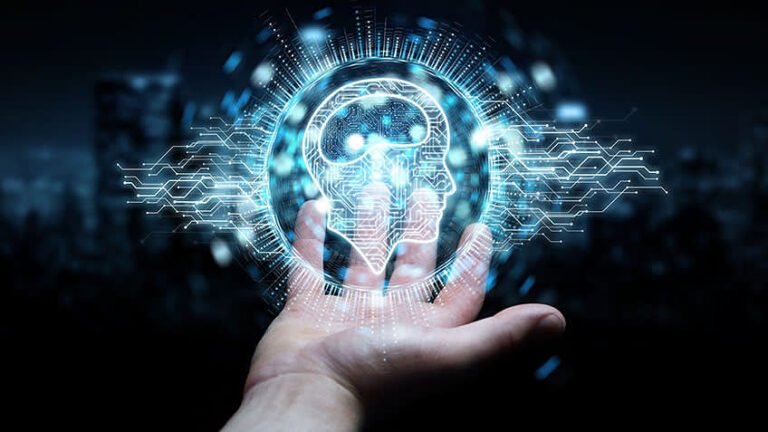The Impact Of AI On Society: How Is AI Impacting Society, Both Positive And Negative Ways?
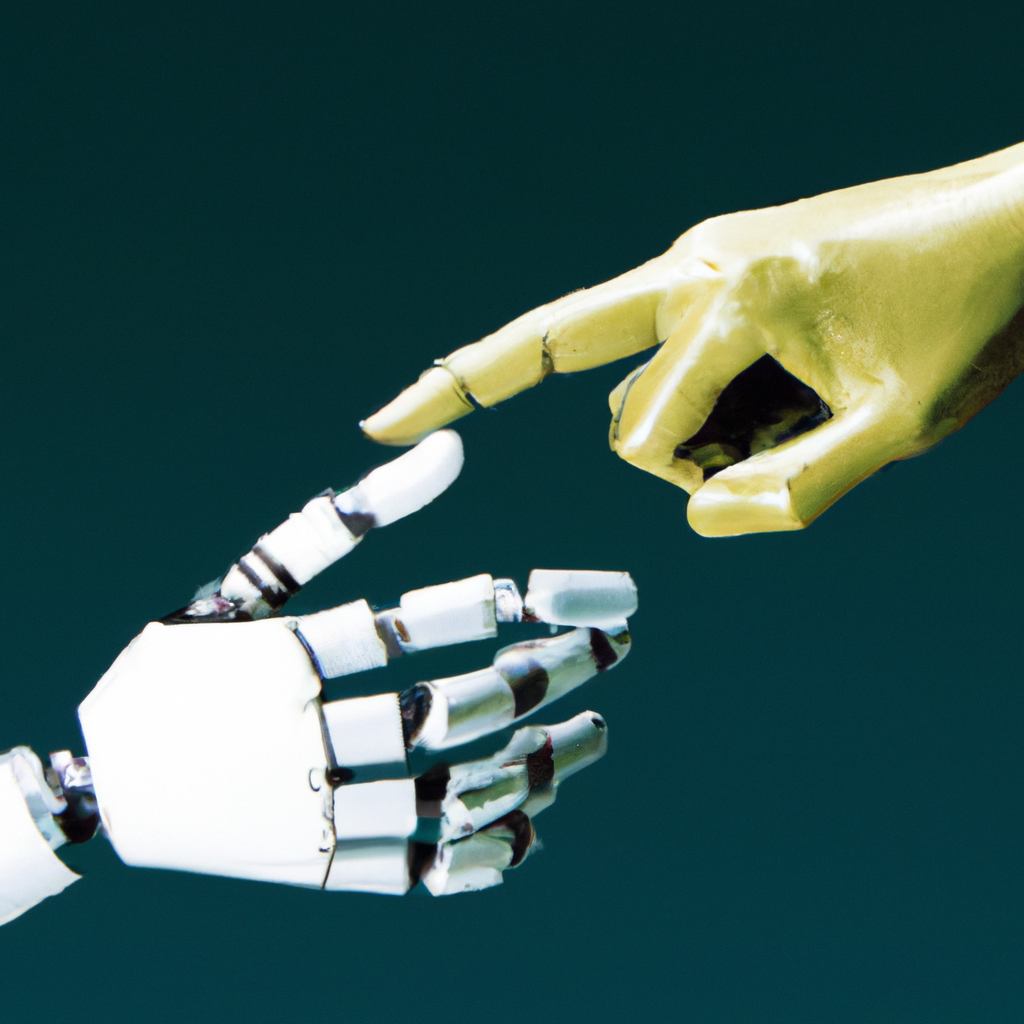
Artificial Intelligence (AI) has become an integral part of our lives, revolutionizing the way we live, work, and interact with the world around us. From voice assistants like Siri and Alexa to self-driving cars and personalized recommendations, AI has made astounding advancements that shape our daily experiences. However, this rapid advancement raises questions about the impact of AI on society. In this article, we will explore the positive and negative ways in which AI is influencing society, shedding light on the potential benefits and possible challenges that lie ahead. So, fasten your seatbelts as we embark on a journey to understand the profound impact of AI on our lives.

Positive Impact of AI on Society
Enhancing Efficiency and Productivity
Artificial Intelligence has completely transformed the way organizations operate by enhancing efficiency and productivity. With AI-powered automation and machine learning algorithms, repetitive and mundane tasks can be performed faster and more accurately. This allows businesses to allocate their human resources to more critical and creative tasks, leading to increased productivity and overall organizational success. From streamlining processes to automating customer interactions, AI is significantly reducing human effort and enabling organizations to achieve optimal efficiency levels.
Improving Healthcare and Medicine
AI has revolutionized the healthcare and medicine industry, leading to improved patient care and diagnostic accuracy. With the help of machine learning algorithms, AI can analyze vast amounts of medical data and identify patterns that might not be easily identifiable by humans. This assists healthcare professionals in making accurate diagnoses and developing personalized treatment plans. Moreover, AI can predict potential health conditions, helping doctors take preventive measures and provide timely interventions. By leveraging AI, the healthcare industry is making huge strides towards more effective and efficient medical practices.
Enhancing Accessibility and Inclusion
Artificial Intelligence has played a crucial role in enhancing accessibility and inclusion in society. AI-powered technologies such as speech recognition, natural language processing, and computer vision have enabled individuals with disabilities to overcome barriers and participate more fully in various aspects of life. For instance, AI-powered tools like smart glasses can assist visually impaired individuals in navigating their surroundings and accessing information. AI chatbots and virtual assistants also provide support in real-time, enhancing accessibility for people with different abilities. By leveling the playing field, AI is bringing about a positive change in society and promoting inclusivity.
Transforming Transportation and Mobility
Artificial Intelligence is transforming the transportation and mobility sector, revolutionizing the way we travel. AI-powered technologies are making transportation safer and more efficient by enabling autonomous vehicles. These self-driving cars use AI algorithms to navigate the roads, monitor traffic conditions, and avoid accidents. With fewer human errors, AI-powered vehicles have the potential to significantly reduce transportation accidents and save countless lives. Additionally, AI algorithms can optimize transportation routes, reducing congestion and minimizing travel time. The combination of AI and transportation is redefining mobility and setting the stage for a more sustainable future.
Revolutionizing Customer Service
AI is revolutionizing customer service by providing more personalized and efficient experiences. Chatbots and virtual assistants powered by AI can handle customer queries and provide instant responses 24/7. Through natural language processing, AI-powered chatbots can understand and respond to human inquiries accurately, optimizing customer service efficiency. Moreover, AI algorithms can analyze customer data to predict customer preferences and behaviors, enabling businesses to provide tailored recommendations and personalized services. This not only improves customer satisfaction but also allows organizations to foster strong and long-lasting customer relationships.
Advancing Scientific Research and Discovery
AI is advancing scientific research and discovery by automating data analysis and accelerating the pace of scientific breakthroughs. Machine learning algorithms can process massive amounts of data, identify patterns, and discover correlations that were previously challenging or time-consuming for humans to uncover. This opens up new opportunities in various scientific fields, ranging from genomics to particle physics. AI is also instrumental in drug discovery processes, helping researchers identify potential drug candidates and streamline the development process. By leveraging AI, scientists can make significant strides in their research, leading to advancements that benefit society as a whole.
Improving Safety and Security
AI is improving safety and security in various domains, from surveillance to cybersecurity. In terms of surveillance, AI-powered systems can detect potentially dangerous situations, allowing for quick responses and preventive measures. These systems can analyze video footage in real-time and alert authorities when anomalies are detected, ensuring the safety of public spaces. AI is also essential in cybersecurity, as it can detect and prevent cyber threats, identify vulnerabilities, and mitigate risks. By enhancing safety and security measures, AI is creating a safer environment for individuals and organizations alike.
Empowering Personalized Education
Artificial Intelligence is empowering personalized education, tailoring learning experiences to the needs of individual students. AI-powered platforms can analyze student data and create adaptive learning paths that cater to each student’s strengths, weaknesses, and learning preferences. By providing personalized recommendations and targeted interventions, AI helps students to learn at their own pace and achieve better educational outcomes. Additionally, AI-powered virtual tutors and educational assistants can provide instant feedback and support, enhancing the learning experience. With AI in education, every student has the opportunity to thrive and reach their full potential.
Assisting in Humanitarian Efforts
AI is making a significant impact in humanitarian efforts, assisting in disaster management, and improving the efficiency of humanitarian aid organizations. AI-powered algorithms can analyze vast amounts of data to identify areas affected by natural disasters, assess damage, and facilitate swift responses. With the help of AI, rescue and relief efforts can be coordinated more efficiently, potentially reducing casualties and saving lives. Additionally, AI can assist in identifying patterns of poverty and inequality, enabling organizations to target their interventions more effectively. By leveraging AI in humanitarian efforts, the world can respond more rapidly and effectively to crises, ultimately improving the lives of those in need.
Driving Sustainability and Environmental Conservation
Artificial Intelligence is driving sustainability and environmental conservation by optimizing resource usage and enabling more eco-friendly practices. AI algorithms can analyze data related to energy consumption, waste management, and environmental factors to identify areas for improvement and develop strategies for sustainable development. From optimizing energy grids to reducing carbon emissions, AI is playing a vital role in mitigating the effects of climate change. By harnessing the power of AI, societies can transition towards more sustainable practices and preserve the environment for future generations.
Negative Impact of AI on Society
Job Displacement and Unemployment
One of the notable negative impacts of AI on society is the potential for job displacement and increased unemployment. As AI automation and machine learning algorithms continue to advance, certain jobs that are repetitive and predictable in nature may become obsolete. This can lead to a significant number of individuals losing their jobs and struggling to find new employment opportunities. It is crucial for society to adapt to this change by providing reskilling and upskilling opportunities, ensuring the workforce stays competitive in the evolving AI-driven job market.
Unexpected Ethical Dilemmas
As AI becomes more sophisticated and autonomous, unexpected ethical dilemmas may arise. For example, autonomous vehicles may face the difficult decision of choosing between two potential accidents, potentially sacrificing the occupants’ safety to minimize harm to others. AI algorithms used in criminal justice systems may introduce biases or unfairness, disproportionately affecting certain groups. Striking the right balance between the benefits and the ethical implications of AI decisions remains a challenge, and it requires careful consideration and ongoing evaluation to ensure ethical guidelines are in place.
Loss of Human Connection
While AI technologies provide convenience and efficiency, there is a concern about the potential loss of human connection. With the increasing reliance on AI-powered virtual assistants and chatbots, interpersonal interactions might be reduced, impacting social relationships. The absence of face-to-face conversations and genuine human emotions can create a sense of disconnection and isolation. Balancing the use of AI technologies while preserving meaningful human connections is a crucial aspect society needs to address.
Reliance on Biased Algorithms
AI algorithms are only as good as the data they are trained on. If the training data is biased or lacks diversity, AI systems may inherently perpetuate those biases and reinforce existing social inequalities. For example, AI algorithms used in recruitment processes might inadvertently discriminate against certain demographic groups if the training data is biased. Recognizing and mitigating bias in AI algorithms is essential to ensure fairness and prevent the amplification of existing societal disparities.
Privacy and Surveillance Concerns
The increasing use of AI technologies raises concerns about privacy and surveillance. AI-powered systems have the ability to collect and analyze vast amounts of personal data, potentially compromising individual privacy. Surveillance systems that leverage AI algorithms can track and monitor individuals’ activities, raising concerns about infringements on privacy rights. To address these concerns, robust data protection laws, transparency in data collection and usage, and clear regulations regarding the use of AI in surveillance are necessary to protect individuals’ privacy and maintain societal trust.
Cybersecurity Threats
While AI can be a powerful tool in cybersecurity, it can also be exploited by malicious actors to carry out cyber attacks. The same AI algorithms that detect and prevent cyber threats can be reversed engineered to identify vulnerabilities in systems and launch sophisticated attacks. Additionally, the increasing automation and autonomy of AI systems can make them more vulnerable to attacks, potentially leading to significant cybersecurity breaches. Continuous innovation in cybersecurity measures and ongoing research to stay ahead of potential threats are crucial to prevent AI from being weaponized by adversaries.
Unequal Access and Technological Divide
The adoption of AI technologies can exacerbate existing inequalities and create a technological divide. Access to AI-enabled services and advancements is not distributed equally, leading to a disparity between privileged and marginalized communities. Limited access to AI technology and its benefits can widen the existing socio-economic gaps. To address this issue, efforts should be made to ensure equitable access to AI technologies, bridging the technological divide, and promoting inclusivity and equal opportunities for all.
Potential for Weaponization
AI technologies, if in the wrong hands, have the potential for weaponization. Autonomous weapon systems powered by AI can pose significant threats to global security, as they can make independent decisions about who to target and when to engage. The lack of human intervention and ethical considerations raises concerns about the misuse of AI in warfare and conflicts. International efforts to regulate and restrict the development and deployment of autonomous weapons are necessary to prevent the escalation of violence and promote peace.
Social and Economic Inequality
AI has the potential to exacerbate existing social and economic inequalities. The impact of job displacement, as mentioned earlier, can lead to a wider wealth gap and increased inequality. Moreover, AI systems that rely on vast amounts of data can further entrench systemic biases and perpetuate inequalities, such as in credit scoring or employment decision-making processes. Proactive measures to address these issues, such as diverse and inclusive AI development teams and regulatory frameworks, are crucial to avoid deepening social and economic divisions.
Dependence on AI and Technological Failures
While AI offers numerous benefits, an over-reliance and dependence on AI systems may lead to vulnerabilities and technological failures. Malfunctions or glitches in AI systems can have widespread consequences, affecting critical sectors such as healthcare, transportation, and infrastructure. It is important to develop robust backup systems and contingency plans to mitigate the risks associated with potential failures and ensure that human oversight is in place to prevent catastrophic consequences.
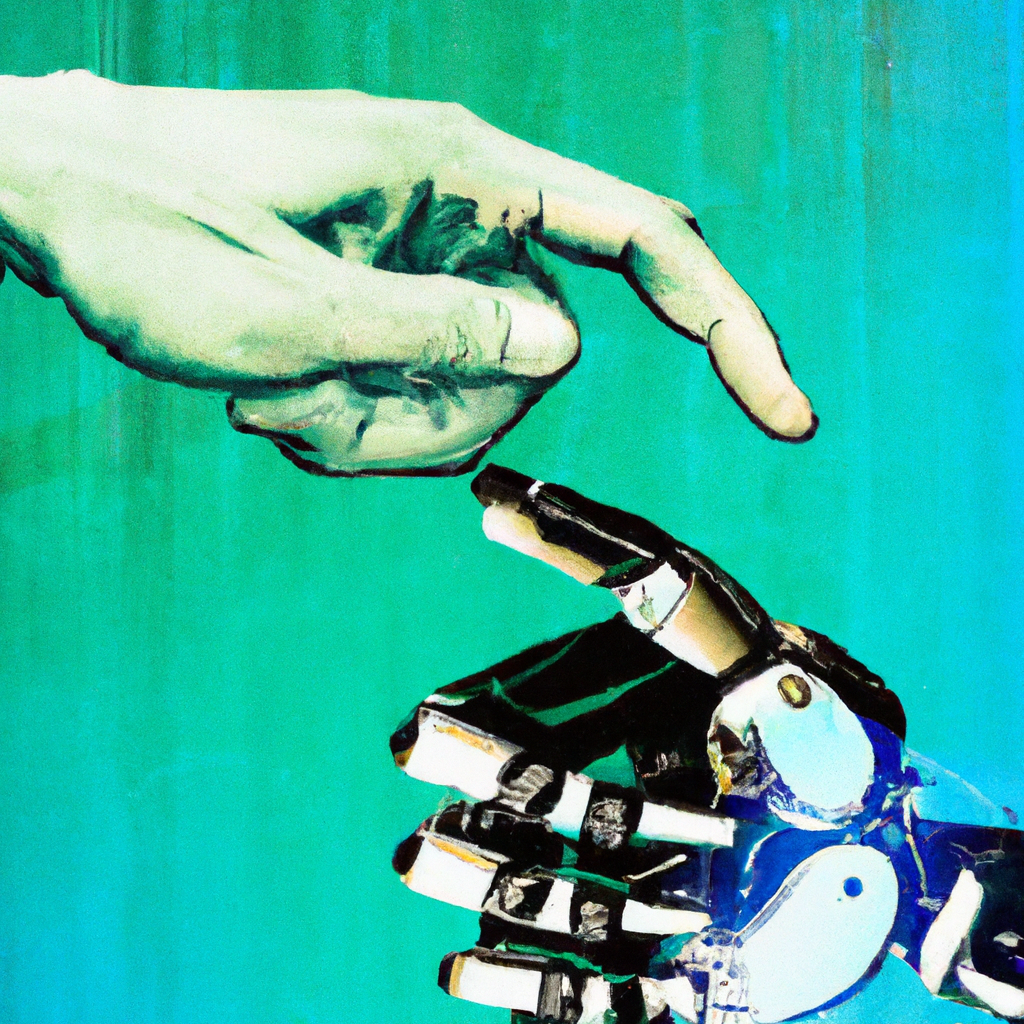
Conclusion
The impact of AI on society is multifaceted, with both positive and negative ramifications. AI has the potential to enhance efficiency and productivity, revolutionize healthcare, improve accessibility, transform transportation, personalize education, and make scientific breakthroughs. However, it also raises concerns such as job displacement, ethical dilemmas, loss of human connection, biased algorithms, privacy concerns, cybersecurity threats, inequality, weaponization, and dependence on technology.
To harness the positive impact of AI and mitigate its negative consequences, it is essential for society to invest in research, develop robust ethical frameworks, ensure equitable access, promote transparency, and prioritize human-centric approaches. By harnessing the power of AI responsibly and ethically, we can maximize its benefits and shape a future where AI works in harmony with society, augmenting human potential and improving the overall quality of life for all.
Want to write articles like us? Get your copy of AI WiseMind here!


